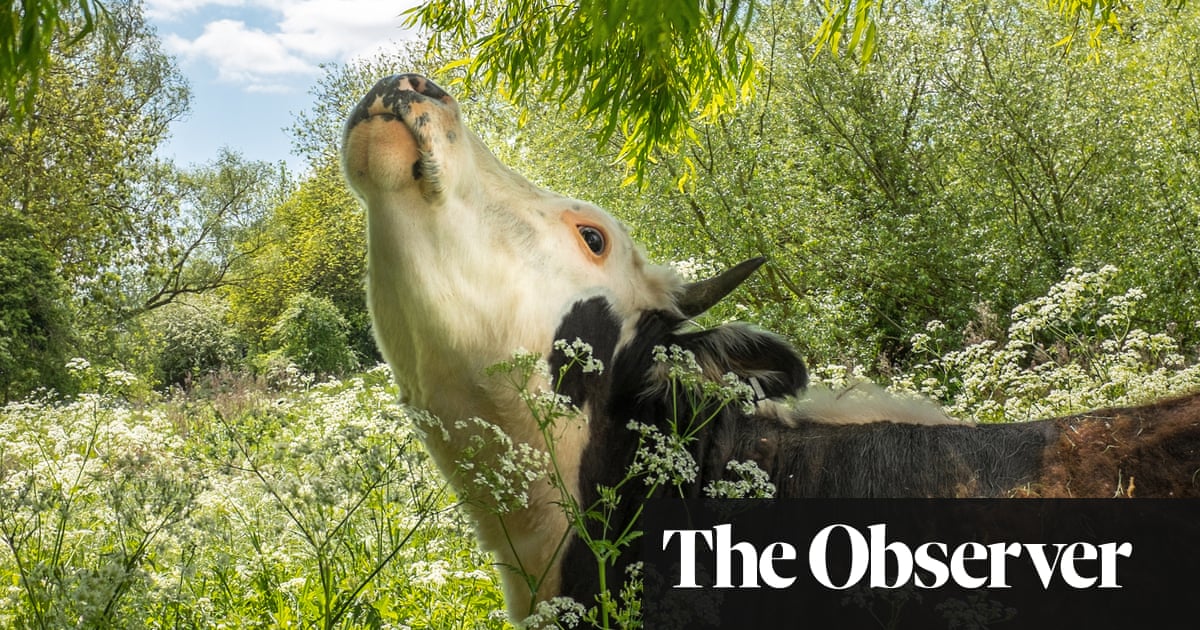Cambridge could lose city centre cows if council cuts out-of-hours rescue service
Ancient grazing rights for the famed cattle are at risk in budget rethink
Since the middle ages, they have grazed on the commons of Cambridge, crossing paths with the scholars of colleges beside the River Cam. But the sight of cows chewing the cud on public land in the centre of the city could soon become a thing of the past.
Cambridge city council is considering budget cuts that farmers say will force them to withdraw their cattle from grazing on council-managed sites such as Midsummer Common, Coe Fen and Sheep’s Green.
It is consulting residents on whether it should pass the responsibility for funding its out-of-hours grazing management service, which costs the council £8,000 to £10,000 a year, to the owners of the cattle.
The service ensures that animal rescuers – known as pinders – are on call 24/7 during the April-to-October grazing season to rescue cows who fall into the river or get injured on Cambridge’s six commons, which are popular with dog owners and cyclists.
“Common grazing isn’t the best grazing in the world,” said Mark Drew, one of the four farmers who grazed cattle on the commons this year. “If the price went up, it wouldn’t be worth it.”
Quickly attending the rare cattle “emergencies” that occur on the commons is a challenge for farmers, who typically live in rural Cambridgeshire. “It wouldn’t be financially viable for us to keep traipsing into town when there’s problems, especially because half the time the pinder service gets called it’s because someone thinks there’s a problem with the cattle – when there isn’t,” Drew said.
Vet Angelika von Heimendahl has been grazing a dozen cattle on Midsummer Common for 20 years, selling the beef half a mile away at the farmers’ market in the city centre. “I love the idea of urban farming, of people being in touch with food and livestock,” she said.
If she were asked to pay thousands of pounds extra in April to graze her cattle on common land, she could not afford to do it, she said. “I wouldn’t come back and none of the other farmers would either.”
She said a 24/7 pinder service was only necessary because there were risks that come with grazing cattle in a city centre, next to a river, that do not exist elsewhere. “With my cattle that graze outside Cambridge, I never get called out. When they fall in a natural river, they can just come out. But on the commons we have boat mooring walls, lots of people and lots of dogs. That’s why we need a pinder.”
She said one of her cows had once tripped over a mooring line from a houseboat, while Drew lost a bullock in distressing circumstances near Coe Fen earlier this year, leaving him “significantly out of pocket”. “Someone couldn’t control their dog, and it chased the cattle past one of the bollards where the cyclists go through and ran them on to the road,” he said.
For 13 years, Martin Bond, the photographer known online as @acambridgediary, took daily portraits of life in the city, using his photos most recently to reflect on the pandemic in his latest book, Cambridge: Time & Space.
after newsletter promotion
He said his pictures of cows on the commons were among the best-received shots he ever shared with his 100,000 followers on social media. “There wasn’t a year that went by without several pictures of them,” he said, adding that he would be “very sorry” if they went.
“I think they remind people of how special Cambridge is. Five minutes from the middle of town, you can experience this classic bucolic scene – it’s such a rare thing. And the right to graze cattle on common ground in Cambridge is medieval. It’s been there for centuries. I don’t think you can just remove that for the sake of a little creative budgeting.”
Providing a round-the-clock pinder service costs the council about £26,000 a year. In return, farmers paid the council up to £75 per head of cattle for access to the land this year, and point out that the cows and their cowpats also offer rewilding and ecological benefits, saving the council money. “If they lose the cattle, they’re going to have to mow the commons,” said Drew.
The council also receives agricultural subsidies from the government for the commons. This year, it was awarded £7,459 under the Basic Payment Scheme, which came under fire in the recent budget and in 2025 is facing a 76% cut.
A previous attempt in 2021 to withdraw funding from the out-of-hours pinder service, which received four callouts this year, was stopped after a public outcry.
Cambridge city councillor Simon Smith said the council needed to save £6m annually to balance its books, due to its “substantial and growing budget deficit”. “There are difficult decisions to be made,” he said, and urged residents to participate in the consultation online. “The pinder service is just one of many services we are consulting on.”
- Cambridge
- The Observer
- Farming
- Rural affairs
- Autumn budget 2024
- Budget
- Cattle
- news
